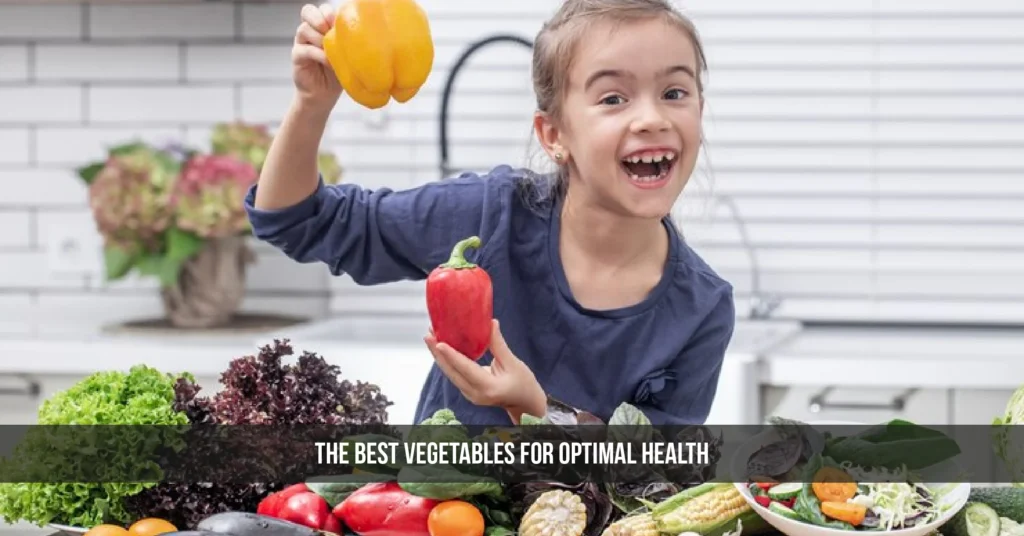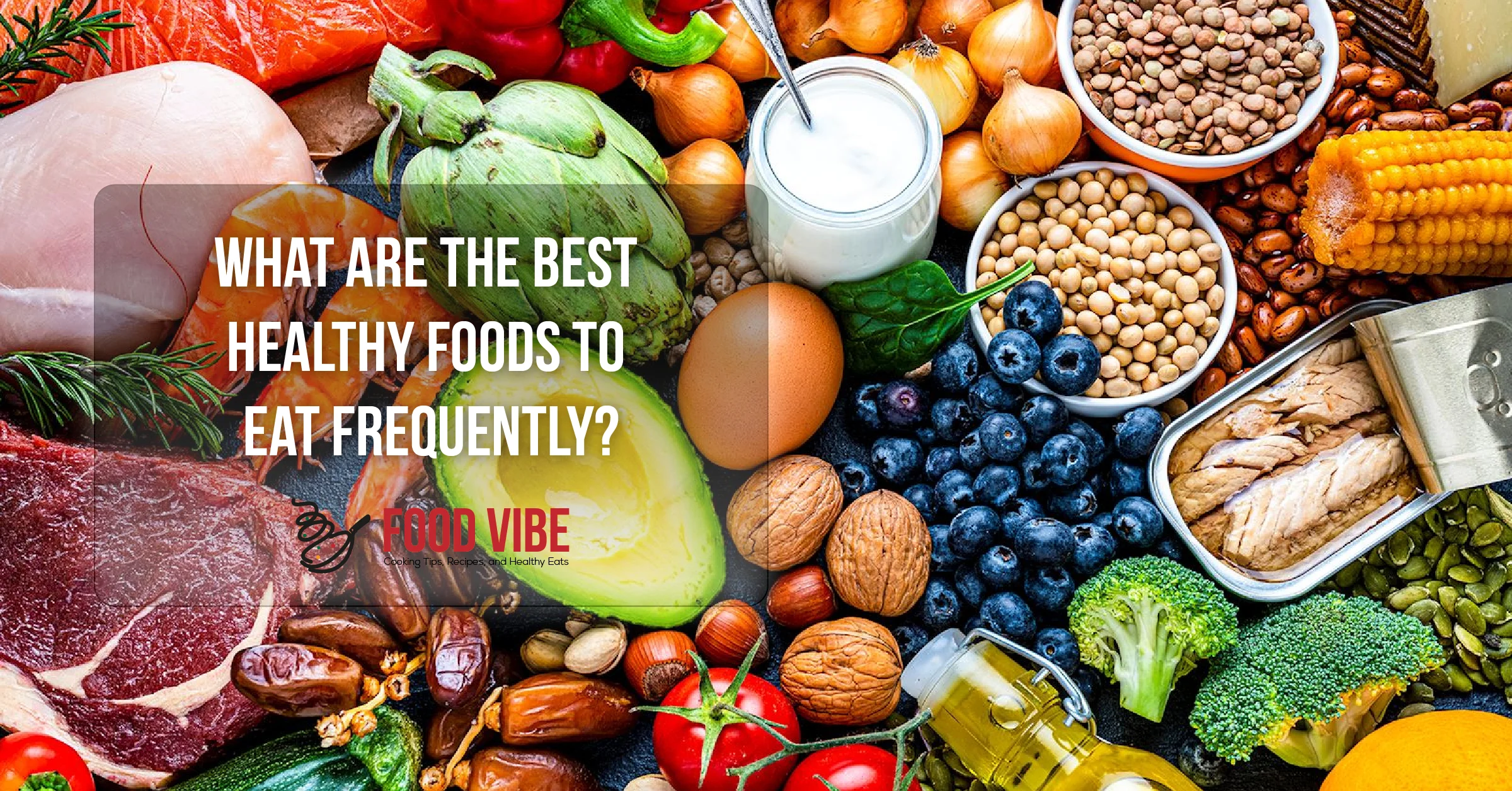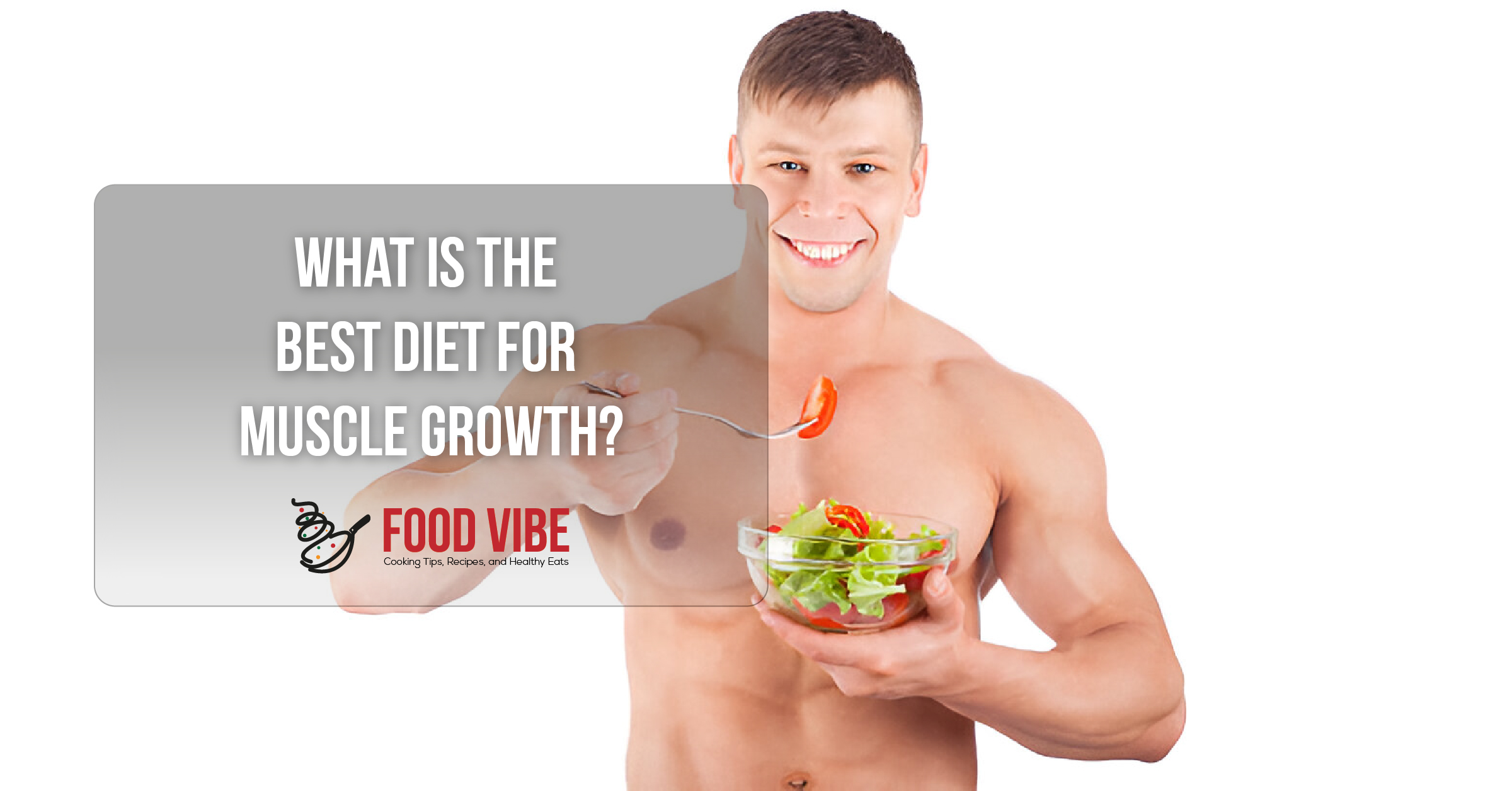What Are the Best Healthy Foods to Eat Frequently?
In today’s fast world, taking care of your health can seem hard. But knowing the best foods to eat is key to feeling good. Eating healthy is more than a trend; it’s about giving your body the nutrients it needs.
By choosing nutrient-rich foods, you help your body stay healthy. You also get more energy and feel happier. Let’s dive into the different types of healthy foods you should eat often.
From colorful fruits and veggies to whole grains and proteins, each group is important. They all help make your diet balanced. Start your journey to a healthier life by picking the right foods!
Table of Contents
The Importance of Healthy Eating
Healthy eating is key to staying healthy. It’s important to know about nutritional balance. This means getting the right mix of carbs, proteins, fats, vitamins, and minerals.
Eating a variety of foods boosts your health and life quality. A diet full of nutrients is essential for well-being.
Understanding Nutritional Balance
Nutritional balance means eating a mix of foods. This mix is crucial for health. Each food group offers unique benefits.
For example, whole grains, lean proteins, and healthy fats are important. They help keep your energy and mind sharp.
Benefits of a Balanced Diet
A balanced diet offers many benefits. It can improve your mood and energy. It also lowers the risk of serious diseases like heart disease and diabetes.
Your mental function can also get better. This leads to a higher quality of life.
| Nutrient | Source | Health Benefits |
|---|---|---|
| Carbohydrates | Whole grains, fruits, vegetables | Provides energy and supports brain function |
| Proteins | Lean meats, fish, legumes | Necessary for muscle repair and immune health |
| Fats | Nuts, avocados, olive oil | Supports brain health and hormone regulation |
| Vitamins | Fruits, vegetables, dairy | Essential for various bodily functions and disease prevention |
| Minerals | Meat, beans, nuts | Supports bone health and metabolic processes |

What Are Some Healthy Foods That You Should Eat Frequently?
Eating healthy foods every day is key to good health. Choosing foods rich in nutrients helps you stay healthy. Here, find out which foods are best and how to add them to your meals.
Key Nutrient-Dense Foods
Here are some top nutrient-dense foods:
- Leafy Greens: Spinach, kale, and Swiss chard are full of vitamins and minerals.
- Berries: Blueberries, strawberries, and raspberries are packed with antioxidants and fiber.
- Lean Proteins: Chicken breast, turkey, and tofu help build muscle.
- Whole Grains: Quinoa, brown rice, and whole-grain oats are good for your heart and digestion.
Integrating Whole Foods into Your Diet
Adding whole foods to your diet can be easy. Start by planning meals around them. Use fresh veggies, fruits, and whole grains to eat clean.
Here are some tips for healthier eating:
- Swap white rice for quinoa to get more protein and fiber.
- Choose whole-grain bread over white for more nutrients.
- Replace sugary snacks with fresh fruits or raw nuts.
These changes help you eat cleaner and healthier. Start enjoying fresh and whole foods to boost your health and energy.
Superfoods: Nutritional Powerhouses
Learning about superfoods can change how you eat. These foods are full of nutrients that help your body stay healthy. Foods like quinoa, spinach, blueberries, and avocado are great examples. They are packed with vitamins, minerals, and antioxidants that boost your meals.
Definition and Examples of Superfoods
Superfoods are known for their high nutrient content. They are full of vitamins, minerals, fiber, and antioxidants but low in calories. Adding them to your diet can make you healthier. Here are some well-known ones:
- Quinoa – A complete protein source, containing all nine essential amino acids.
- Spinach – Packed with iron, calcium, and antioxidants, excellent for eye health.
- Blueberries – Known for their high levels of antioxidants, beneficial for heart health.
- Avocado – Rich in healthy fats and fiber, aiding in cholesterol management.
Benefits of Adding Superfoods to Your Meals
Adding superfoods to your meals can make them better and offer health benefits. Knowing these benefits can encourage you to eat them more often:
- Boosts Immunity: Many superfoods are rich in vitamins and antioxidants, essential for strengthening the immune system.
- Fights Inflammation: Foods like turmeric and berries have anti-inflammatory properties that may alleviate chronic inflammation.
- Supports Heart Health: Including superfoods like walnuts and avocados can help lower cholesterol levels.
- Enhances Digestion: Foods high in fiber, such as chia seeds and broccoli, promote digestive health.
| Superfood | Key Nutrients | Health Benefits |
|---|---|---|
| Quinoa | Protein, Fiber | Supports muscle growth and digestion |
| Spinach | Iron, Calcium | Improves energy and bone health |
| Blueberries | Antioxidants | Enhances cognitive function and heart health |
| Avocado | Healthy Fats, Fiber | Promotes healthy skin and weight management |
The Role of Fruits in a Healthy Diet
Fruits are key to a healthy diet, packed with vitamins, minerals, and fiber. Eating a variety of fruits boosts your health and well-being. This section focuses on the best fruits for a healthy diet and their benefits.
Top Fruits to Include in Your Diet
Here are the top fruits for your meals, along with their health perks:
- Apples: Full of fiber and Vitamin C, apples are good for your heart and digestion.
- Bananas: Rich in potassium, bananas help muscles and give quick energy.
- Oranges: High in Vitamin C, oranges boost your immune system and skin health.
- Berries: Blueberries, strawberries, and raspberries are full of antioxidants, that protect your cells.
Adding these fruits to your diet is easy. Here are some ideas:
- Blend bananas or berries into smoothies for a tasty breakfast or snack.
- Carry an apple or orange for a quick snack.
- Add berries to your cereal or yogurt for flavor.
- Use apples as a natural sweetener in baked goods.
| Fruit | Key Nutrients | Health Benefits |
|---|---|---|
| Apple | Fiber, Vitamin C | Supports heart health, aids digestion |
| Banana | Potassium, Vitamin B6 | Aids muscle function, provides quick energy |
| Orange | Vitamin C, Folate | Boosts immune system promotes skin health |
| Berries | Antioxidants, Vitamin K | Protects cells, supports brain health |
Eating a variety of fruits adds color and flavor to your meals. It also brings many health benefits. Focus on fruits in your diet for a healthier lifestyle.
The Best Vegetables for Optimal Health
Eating a variety of vegetables can greatly improve your health. Leafy greens and colorful veggies are packed with nutrients. They offer vitamins, minerals, and antioxidants that are key for staying healthy.
Leafy Greens and Their Nutritional Benefits
Leafy greens are super nutritious. Kale, spinach, and Swiss chard are full of vitamins A, C, and K. They also have iron and calcium. Plus, they’re low in calories, making them a great choice for any meal.
- Kale: High in vitamins A, C, and K, plus antioxidants.
- Spinach: Rich in iron, magnesium, and vitamins.
- Swiss Chard: Offers a variety of minerals and antioxidants.
Colorful Vegetables and Their Antioxidants
Colorful veggies add beauty to your meals and health benefits. Bell peppers, carrots, and tomatoes are full of antioxidants. These foods help your skin, boost your immune system and lower disease risks.
- Bell Peppers: Loaded with vitamins A and C, plus unique antioxidants.
- Carrots: High in beta-carotene, promoting eye health.
- Tomatoes: Rich in lycopene, which may reduce cancer risks.
| Vegetable | Key Nutrient | Health Benefit |
|---|---|---|
| Kale | Vitamin K | Supports bone health |
| Spinach | Iron | Boosts energy levels |
| Bell Peppers | Vitamin C | Enhances immune function |
| Carrots | Beta-carotene | Improves vision |
Adding these veggies to your diet is a smart move. They give you the nutrients you need for good health. Try to eat a variety to get all the benefits.

Whole Grains: A Staple for Nutrient-Dense Meals
Whole grains are key to a healthy diet, offering many benefits not found in refined grains. They keep their natural parts, giving you lots of nutrients. The fiber in them helps with digestion and keeps you full, making them great for healthy meals.
Why Choose Whole Grains Over Refined Options
Choosing whole grains over refined ones boosts your nutrition. They have more vitamins, minerals, and antioxidants. This helps your heart, digestion, and energy levels. Refined grains, on the other hand, are often processed, losing these important nutrients.
Popular Whole Grain Choices
Adding whole grains to your meals is easy and tasty. Here are some popular ones:
- Brown Rice: A versatile base for stir-fries and salads.
- Quinoa: Packed with protein and great as a side dish or in salads.
- Oats: Perfect for a hearty breakfast or added to smoothies.
- Barley: Excellent in soups or as a side dish.
- Whole Wheat Bread: A nutritious option for sandwiches.
By adding these whole grains to your diet, you boost your meal’s nutrition. You also get to enjoy different flavors and textures that make any dish better.
Healthy Proteins to Include Frequently
A good diet has many protein sources. Proteins help fix muscles and keep our bodies working right. It’s important to pick the right proteins for our health. This part talks about lean meats and plant-based proteins, and why nuts and seeds are good too.
Lean Meats vs. Plant-Based Proteins
Lean meats like chicken, turkey, and fish are great for protein. They have less fat than other meats. These meats help grow muscles and control weight.
Plant-based proteins, like beans, lentils, and tofu, are good for those who eat less meat. They’re full of fiber, vitamins, and minerals. Eating plant-based proteins can also make your heart healthier and lower disease risks.
Benefits of Regularly Eating Nuts and Seeds
Nuts and seeds are full of protein and healthy fats. Foods like almonds, walnuts, chia seeds, and flaxseeds are very nutritious. They make you feel full, help your heart, and fight inflammation.
Here’s a table showing the protein in different healthy foods:
| Protein Source | Protein Content (per 100g) | Additional Nutrients |
|---|---|---|
| Chicken Breast | 32g | Low fat, Vitamin B6 |
| Lentils | 9g | Fiber, Iron, Folate |
| Almonds | 21g | Healthy fats, Vitamin E |
| Tofu | 8g | Calcium, Iron |
| Salmon | 25g | Omega-3 fatty acids, Vitamin D |
Mixing lean meats, plant-based proteins, and nuts and seeds in your diet is good. It makes your diet better and helps you stay healthy.
The Importance of Healthy Fats
A well-balanced diet includes healthy fats, which are key for good health. It’s important to know about the different types of fats and their benefits. Healthy fats help with energy, hormone production, and vitamin absorption.
Types of Healthy Fats
There are three main types of healthy fats:
- Unsaturated fats: Found in foods like avocados, olive oil, and nuts, these fats help reduce inflammation and improve heart health.
- Saturated fats: Though often viewed with caution, moderate consumption of saturated fats from sources like coconut oil and dark chocolate can be part of a healthy diet.
- Trans fats: These should be avoided, as they are linked to various health issues.
How to Incorporate Healthy Fats into Your Diet
Adding healthy fats to your meals can make you feel full and improve your health. Here are some tips:
- Use olive oil as a dressing for salads or drizzling over-cooked vegetables.
- Add slices of avocado to sandwiches or smoothies for a creamy texture.
- Include fatty fish like salmon in your meal rotation at least twice a week.
- Snack on a handful of nuts or seeds to satisfy hunger between meals.
Understanding the importance of healthy fats helps you make better food choices. Enjoying them in moderation can lead to better heart health, sustained energy, and overall well-being.
Essential Dairy or Dairy Alternatives
Choosing the right dairy or dairy alternatives is key for a healthy diet. Dairy is packed with nutrients like calcium and vitamin D. These are crucial for strong bones and a healthy immune system. Knowing the benefits of dairy can help you pick the best foods for your health.
Nutritional Benefits of Dairy Products
Dairy items like milk, yogurt, and cheese are full of health perks. Here’s what they offer:
- Calcium: Important for strong bones and preventing osteoporosis.
- Vitamin D: Helps your body absorb calcium and boosts immune health.
- Protein: Essential for muscle repair and growth, great for recovery.
- Probiotics: In fermented dairy, they support gut health.
Choosing Healthy Dairy Alternatives
If you’re lactose intolerant or prefer plant-based, there are many dairy alternatives. Choosing healthy ones lets you get similar benefits without dietary issues. Here are some good options:
| Dairy Product | Dairy Alternative | Nutritional Advantages |
|---|---|---|
| Whole Milk | Almond Milk | Low in calories, often fortified with calcium and vitamin D. |
| Yogurt | Soy Yogurt | Rich in protein and often contains probiotics. |
| Cheese | Coconut Yogurt | Dairy-free and can be low in carbohydrates, suitable for various diets. |
Adding these dairy alternatives to your diet can make meals more interesting. You get to enjoy different tastes and textures while meeting your health needs.
Creating a Balanced Meal Plan
Creating a balanced meal plan is key to reaching your health goals. Meal prepping helps by making healthy choices easier and reducing the urge for junk food. It also makes sure you eat a variety of foods, including all the nutrient-rich ones you’ve learned about.
Tips for Meal Prepping for Healthy Eating
Here are some tips to start meal prepping and make a balanced meal plan:
- Organize your kitchen: Keep your kitchen tidy and stocked with what you need. Having healthy basics ready makes cooking easier.
- Plan your weekly meals: Spend time planning your meals for the week. Mix up proteins, whole grains, and veggies to keep your diet interesting.
- Prepare snacks in advance: Cut up veggies or nuts for snacks. It saves time and makes healthy snacking easy.
- Batch cook: Cook big batches of meals that freeze well. Soups, stews, or grain salads are great for this.
- Use clear containers: Store meals in clear containers for easy identification. It makes planning meals simple.
| Day | Breakfast | Lunch | Dinner | Snacks |
|---|---|---|---|---|
| Monday | Oatmeal with berries | Quinoa salad with chickpeas | Grilled chicken with steamed broccoli | Carrot sticks and hummus |
| Tuesday | Smoothie with spinach and banana | Turkey wrap with spinach | Salmon with asparagus | Greek yogurt with honey |
| Wednesday | Eggs and avocado toast | Veggie stir-fry with brown rice | Beef and vegetable soup | Almonds |
| Thursday | Chia seed pudding | Lentil salad with a lemon dressing | Baked tofu with bok choy | Apple slices with peanut butter |
| Friday | Fruit and nut granola | Grilled vegetable sandwich | Fish tacos with cabbage slaw | Rice cakes with avocado |
By following these tips, you’ll stick to healthy eating and have a balanced meal plan ready. Preparing meals in advance boosts your wellness journey.

Conclusion
Adding a variety of healthy foods to your daily meals is key to a nutritious diet. This article has shown how important it is to eat balanced. Choose foods like fruits, vegetables, whole grains, and healthy fats.
By mixing up your meals, you make sure your body gets all the nutrients it needs. Meal prepping and planning are great tools to help you. They make it easier to stick to healthy eating and make better food choices.
It’s time to start making these changes. Begin adding these tips to your life and focus on eating well. You can change your eating habits and improve your health with smart choices.
Also Read: Balanced Vegetarian Diet: Tips for Optimal Nutrition
FAQs
What are the best nutrient-dense foods to include in a healthy diet?
Nutrient-dense foods like leafy greens, berries, lean proteins, whole grains, and nuts are essential for a balanced diet, providing vitamins, minerals, and antioxidants to support overall health.
How can I incorporate superfoods into my daily meals?
Superfoods like quinoa, spinach, blueberries, and avocado can be added to smoothies, salads, or main dishes to boost nutrient intake and enhance health benefits.
Why are whole grains better than refined grains?
Whole grains retain their natural nutrients, including fiber, vitamins, and minerals, which support digestion, heart health, and energy levels, unlike refined grains that lose these benefits during processing.
What are some healthy fats, and how can I include them in my diet?
Healthy fats, such as those found in avocados, olive oil, nuts, and fatty fish, can be added to salads, snacks, or meals to improve heart health and provide sustained energy.
How can meal prepping help with maintaining a balanced diet?
Meal prepping ensures you have healthy, nutrient-rich meals ready, reducing the temptation for unhealthy choices and making it easier to stick to a balanced eating plan throughout the week.














Post Comment